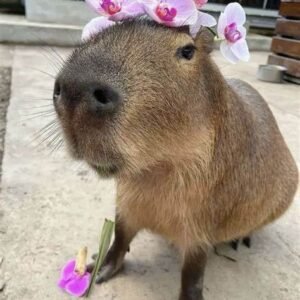Understanding the Striped Skunk as a Pet
Striped skunks, known for their distinctive coloration and playful demeanor, can make fascinating and affectionate pets. As social animals, skunks often thrive in environments that promote interaction with both humans and other pets. Their adaptable nature allows them to form strong bonds with their owners, often engaging in playful behaviors that can be quite entertaining. Recognizing their social tendencies is essential for potential owners, as skunks are happiest when they have companionship and stimulation.
A well-rounded diet is crucial for maintaining the health of striped skunks. These animals are omnivores and typically require a variety of foods to ensure they receive the necessary nutrients. A balanced diet may include high-quality commercial skunk pellets, fruits, vegetables, and occasional protein sources like cooked eggs or meat. Providing proper nutrition is key, as dietary deficiencies can lead to serious health issues.
To promote mental and physical well-being, habitat enrichment is vital for striped skunks. Their living environments should include activities that challenge their curiosity and encourage exploration. This can be accomplished through various means, such as interactive toys, climbing structures, and tunnels. Skunks are naturally inquisitive and require an environment that stimulates their minds, ensuring they remain content and engaged.
Potential skunk owners must also navigate legal considerations before bringing one home. Regulations concerning the ownership of striped skunks can vary significantly by region. Some areas may require permits, while others might prohibit ownership altogether. It is essential for prospective pet owners to research and understand local laws to ensure compliance and to promote the welfare of these adorable creatures. With proper care and awareness, striped skunks can thrive in a domestic setting, enriching the lives of their owners.
Challenges and Rewards of Keeping a Striped Skunk
Owning an adult striped skunk can be both a rewarding and challenging experience. One of the foremost misconceptions about these animals is that they are inherently smelly. While it is true that skunks produce odor, proper care and management can significantly mitigate this issue. Regular bathing with specialized shampoos formulated for skunks can help, as can a balanced diet that minimizes odor-producing elements. Additionally, regular cleaning of their habitat is crucial. By maintaining cleanliness, pet owners can create a more pleasant living environment, ultimately enhancing the pet-owner relationship.
Another challenge pet owners face is ensuring their striped skunk receives proper veterinary care. Skunks have specific health requirements, including vaccinations against common diseases. Routine veterinary check-ups are essential to monitor their health and prevent potential issues. As responsible pet owners, it is imperative to seek out veterinarians experienced with exotic pets to ensure adequate care for these unique animals. Skunks also require a specific diet to thrive, consisting of fresh fruits, vegetables, and high-quality commercial skunk diets. Providing the right nutrition is fundamental in preventing health problems.





